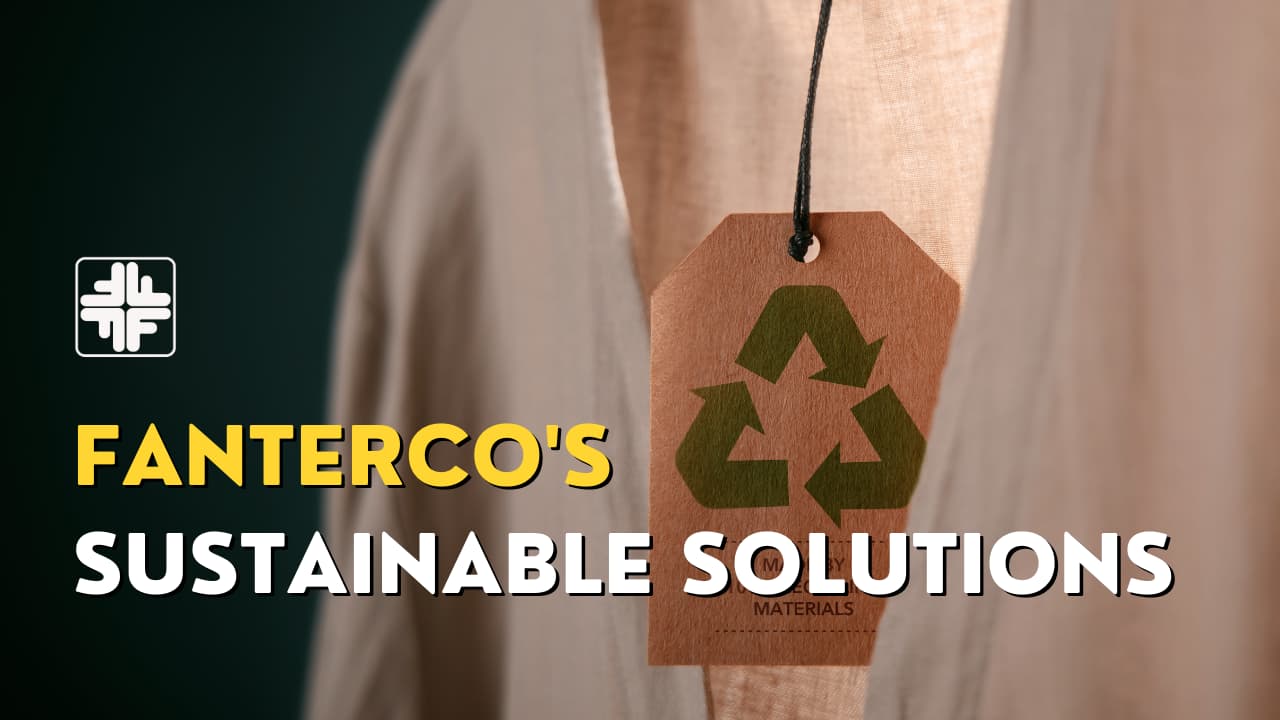Embracing Environmental Responsibility in the Fashion Industry: Sustainable Textile Manufacturing with Recycled Polyester
2023/8/15
Embracing Environmental Responsibility in the Fashion Industry: Sustainable Textile Manufacturing with Recycled Polyester
The fashion industry stands at a pivotal juncture, confronted by the weight of its environmental impact. Amid this critical moment of introspection, sustainable practices have risen as the lodestar of change. A shining beacon among these transformative measures is the integration of recycled polyester into the very fabric of textile manufacturing.
This article delves deeply into the myriad benefits that arise from infusing recycled polyester into the production process, guiding the industry towards a path of greater eco-consciousness and responsibility. From diverting waste materials to offering comparable performance to virgin polyester, recycled polyester emerges as a linchpin in the quest for a more sustainable fashion future.
Advantages of Recycled Polyester for Textile Manufacturing
Recycled polyester, as explored in our earlier article "Unveiling the Sustainability of Recycled Polyester - Redefining Fashion with Eco-Friendly Fibers" brings forth a multitude of benefits to textile manufacturing. Chief among them is its role as a sustainable alternative to traditional polyester, derived from non-renewable fossil fuels. Recycled polyester, on the other hand, is sourced from post-consumer PET bottles or post-industrial polyester waste, diverting these materials from landfills and lessening the reliance on virgin resources. By choosing recycled polyester, fashion brands, and designers can significantly slash their carbon footprint and actively contribute to a circular economy.

Furthermore, recycled polyester mirrors the performance attributes of its virgin counterpart, including strength, durability, and versatility. Whether it's clothing, accessories, or home textiles, recycled polyester offers a sustainable avenue without sacrificing quality or style.
Quality Assurance in Recycled Polyester Manufacturing
Ensuring the integrity of recycled polyester products relies heavily on a journey steeped in quality assurance. This voyage is indispensable for upholding benchmarks of durability, performance, and sustainability in the end products. The expedition of recycled polyester manufacturing mirrors a delicate choreography of exacting steps, each contributing to the birth of a textile that resonates with eco-consciousness. These steps, while substantiating the quality, also underscore an unyielding allegiance to sustainability.
This voyage of excellence unveils its key facets through the following intricate processes:

1. Raw Material Selection and Sorting:
At the genesis of this process lies the careful curation of raw materials. Employing advanced sorting technologies, including optical scanners and automated systems, ensures that only the most suitable and uncontaminated polyester waste is chosen. This rigorous selection process safeguards the integrity of the recycled polyester, divesting it of contaminants and non-polyester constituents.
2. Cleaning and Pre-Treatment:
Purity is paramount in the world of recycled polyester. Thorough cleaning, drying, and sterilization procedures are diligently employed, eliminating any impurities or residues that might compromise the final product. Pre-treatment procedures take this commitment a step further, guaranteeing a uniform and untainted feedstock that is devoid of dyes or finishes.
3. Polymer Recycling and Extrusion:
The recycling and extrusion phases are a harmonious symphony of precision. Quality control measures are scrupulously enforced, overseeing variables such as temperature, pressure, and residence time. This meticulous monitoring ensures the consistent creation of premium recycled polyester fibers, each embodying the essence of sustainability.
4. Testing and Certification:
The commitment to quality doesn't waver even at the end of this intricate journey. Rigorous testing protocols encompass an array of factors, from tensile strength to colorfastness and abrasion resistance. Each test serves as a testament to the durability and reliability of recycled polyester fibers. Furthermore, the adoption of recognized standards, such as the Global Recycled Standard (GRS) and Oeko-Tex Standard 100, serves as a seal of authenticity, cementing the quality and sustainability of the products born from this meticulous process.
Designing for a Circular Future: The Cradle-to-Cradle Principle
The "from cradle to cradle" principle, often referred to as C2C, stands as a beacon of sustainable design and product creation, encompassing a holistic approach to environmental preservation across the entire lifecycle. This profound principle advocates for the transformation of materials within a self-sustaining closed-loop system, perpetually recycled and reused without generating waste or inflicting harm on the environment.

Infusing the C2C principle into the realm of textile product design amplifies the importance of simplicity in materials. By channeling attention towards single materials such as polyester, the complexity of recycling is simplified, and the detrimental effects of mixed materials are mitigated. This strategic emphasis on material simplification contributes to heightened recyclability, extended reusability, and bolstered durability of textile products.
In this transformative voyage, designers emerge as pivotal change agents. Their role transcends mere creativity as they recalibrate their focus from conventional blended fabrics to the purity of polyester selections. This shift not only fuels recycling initiatives but also holds the potential to curtail resource consumption. Simultaneously, it fuels a wave of innovation in design methodologies, ushering in approaches that optimize material utilization, curtail waste generation, and seamlessly integrate modular structures.
Fanterco's Sustainable Solutions for Apparel Distributors, Fashion Brands, and Designers
At Fanterco, our commitment to driving sustainability in the fashion industry is unwavering. As a textile manufacturing solution provider, we recognize the imperative of meeting the demand for sustainable products. Our dedication is reflected in our offering of high-quality recycled polyester solutions, aligning seamlessly with our clients' sustainability goals.

Our commitment to sustainability is intrinsic to our product range. We provide an array of recycled polyester fabrics, embodying both environmental friendliness and the highest quality standards.
A distinctive aspect of partnering with Fanterco is our emphasis on supply chain transparency and traceability. We take pride in ethically sourced recycled polyester fabrics, manufactured in compliance with stringent environmental standards. Our transparency empowers clients to make informed decisions and confidently communicate the sustainability facets of their products.
Furthermore, recognizing diverse design preferences, Fanterco offers tailor-made solutions for apparel distributors, fashion brands, and designers. Collaborative efforts ensure aesthetics, performance, and sustainability objectives are seamlessly met. Through this partnership, clients can establish themselves as pioneers in a sustainable fashion.
We invite those passionate about sustainability to join us. Whether integrating recycled polyester into product lines or seeking insights, Fanterco is here to empower your journey.
Contact us today to explore sustainable solutions, aligning business with environmental impact. Visit our website or reach out directly.
Sources:
The Global Recycled Standard https://textileexchange.org/standards/grs/














